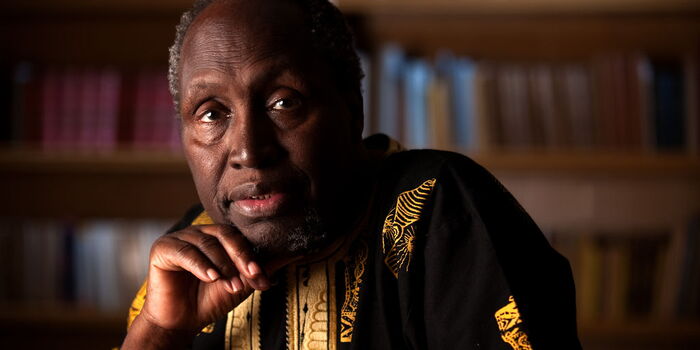Ngugi wa Thiong’o Passes Away at 87
Renowned Kenyan author and scholar, Ngugi wa Thiong’o, has passed away at the age of 87. The sad news was confirmed by his daughter, Wanjiku wa Ngugi, who encouraged the public to honor and celebrate his life and legacy.
“With deep sorrow, we announce the passing of our beloved father, Ngugi wa Thiong’o, on the morning of Wednesday, May 28, 2025,” Wanjiku shared in an official statement.
“He lived a rich and meaningful life and fought many battles with courage. As he wished, let us remember him by celebrating his life and his impactful work.”
Although the cause of his death was not disclosed, the family mentioned that details of his funeral and memorial service would be shared in due course.
Wanjiku also noted that the family’s spokesperson, Nducu wa Ngugi, would later provide further information regarding the celebration of his life.
At the time of his death, Ngugi was living in California, USA, where he had spent a significant part of his life. His bold and outspoken views, especially those that challenged government authorities, led him to spend decades in exile and semi-exile starting from the 1980s.
Ngugi rose to national and international fame after the Kenyan government banned his politically charged play Ngaahika Ndeenda (I Will Marry When I Want) in the 1970s. The banning of the play and his later imprisonment marked a turning point in his life and career.
These events deeply influenced the themes in his writing, which often focused on nationalism, social justice, resistance, and the struggles of ordinary people.
Throughout his career, Ngugi authored several globally acclaimed novels such as Weep Not, Child, The River Between, A Grain of Wheat, and Petals of Blood. These books were among the earliest works by an East African writer to gain wide international recognition.
His writing helped shape the course of post-colonial African literature by highlighting African voices, cultures, and historical experiences, while challenging colonial narratives and Western dominance in literature.
One of Ngugi’s most notable and courageous decisions was his shift from writing in English to writing in his native language, Kikuyu. He strongly believed that using African languages in literature would help validate and preserve them, bring people closer to their cultural roots, and serve as a powerful tool of resistance against cultural imperialism.
However, his bold stance made him a target of political harassment. In 1982, he fled into self-imposed exile, first settling in the United Kingdom and later moving to the United States.
Although he returned to Kenya briefly in 2004, the visit turned tragic when he and his wife were attacked in their hotel room—a violent incident many believed was politically motivated.
Over the years, Ngugi received numerous honors in recognition of his literary and academic contributions. These included the Nonino International Prize for Literature in 2001, the Park Kyong-ni Prize in 2016, and the PEN Award for Freedom of Expression.
Beyond his achievements as a writer, Ngugi was also a respected academic. He served as a Distinguished Professor of Comparative Literature and English at the University of California, Irvine (UCI), where he continued to inspire generations of students and scholars through his teachings and writings.
Ngugi wa Thiong’o leaves behind a rich legacy of literature, activism, and intellectual thought. His fearless voice, powerful storytelling, and lifelong commitment to African identity and justice will continue to inspire readers and writers around the world for generations to come.
Join Gen Z New WhatsApp Channel To Stay Updated On time https://whatsapp.com/channel/0029VaWT5gSGufImU8R0DO30


